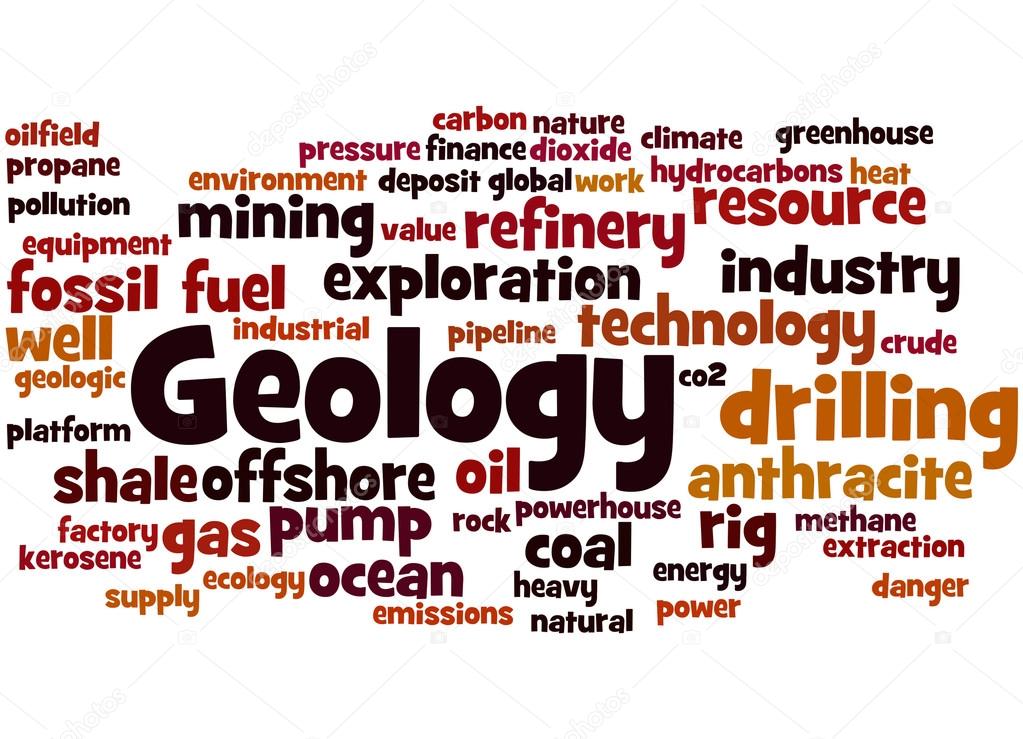Geology,, in its simplest definition,, is the study of the earth. The components of the earth, their structure, and the process of acting upon them are all elements of geology. All the organisms that are living in the environment and how they have changed over time are also studied under geology. The most important problems of society, like energy, climate change, environment, natural hazards (earthquakes, volcanoes, landslides, floods, etc.), water, and mineral resources, are studied by geologists.
geoscientists,There are a lot of growing demands for geoscientists, as the number of trained professionals is quite small compared to the problems they solve. You might consider studying geology if you are one of the people who are fascinated by the earth and the natural environment.10 Reasons Why You Should Study GeologyThere are a lot of growing demands for geoscientists, as the number of trained professionals is quite small compared to the problems they solve. You might consider studying geology if you are one of the people who are fascinated by the earth and the natural environment.
Geoscientists are the caretakers of the earth’s materials and environments. They investigate the earth and its components, forecast the weather, develop the best plans for land use, explore other planets and solar systems, and also provide important information for solving problems and establishing policies for the management of resources, environmental protection, public safety, health, and welfare.

Table of Contents
What Geologists Do
The major duty of geologists is to understand how the earth came about. This will also help them to predict how the processes of the past might have an impact on the future. Some of the duties of geologists include:
Geologists study the earth’s processes.
Processes like landslides, floods, earthquakes, and volcanic eruptions are very hazardous to the environment and people. Geologists study these processes and warn against building important structures in places that could pose a threat to them. With their study of the past and present, they could determine what the future can be. As a result, they guide the development of communities and warn against areas that are prone to natural disasters.
Geologists study earth materials.
Earth materials are used every day by people. Oils, metals, water, rocks, and so on are materials of the earth. Geologists study these materials and understand the areas where the major mineral resources are located. They then plan on how to mine them and the best method to use. In short, geologists study the earth’s’s materials and the most economical ways to use them.
Geologists study the history of the earth.
Geologists work tirelessly to study the history of the earth, especially the past climates and the changes that have occurred over time. They understand what the results of these climate changes might be and their effects on the environment.
Read Also: Top 10 College Degrees That Could Get You Rich
Why study geology?
There are so many reasons to study geology, ranging from making new discoveries to learning more about the world we live in. Some of the most vital issues in society are studied under geology and include climate change, energy, water management, natural resources and their hazards, impacts of development on the environment, and so on.
1. Geologists study the processes that shape the Earth.
Certain factors,, such as volcanoes, earthquakes, floods, and so on, help shape the earth. Geologists study them and the processes involved.
2. Geologists help prepare people ahead of natural disasters:
Areas that are prone to flooding and volcanic eruptions, as well as times when natural disasters are set to occur, have been part of the concerns of geologists, and they help to save the lives of the people living in such areas.
3. If you are interested in the mining process, you can choose to study geology.
Groundwater, oils, natural gases, and rocks that contain valuable minerals are studied by geologists. They also plan their mining.
4. You can work in a variety of job settings after graduation.
There are numerous job opportunities available to geologists, like teaching, working in government agencies, non-governmental organizations, and even environmental consulting companies. You could also be involved in fieldwork or the laboratories conducting research. If you are someone who enjoys outdoor jobs, you might consider geology. All geologists are mandated to use the computer to compile results, analyze research findings, perform calculations, and so on. If you are someone fascinated by technological work, this might be the best option for you.
5. There is always room for career advancement.
With advanced qualifications, you can have the opportunity to take your career to greater heights. You could choose to become a university professor or a supervisor or manager in large companies.
6. As a geologist, you will be responsible for finding resources that are essential to modern society and its survival.
To manufacture modern technologies like cell phones, personal computers, DVDs, televisions, and other gadgets, some elements of the earth are needed. Geologists are great at this.
7. The earth is studied by geologists.
Every material and process that makes up the earth, as well as everything we need to know about the earth – history, evolution, creation, and so on come from the study of the earth.
8. All construction projects that are carried out in this life—roads, bridges, dams, buildings, and so on—all require some geologic studies.
This will help to determine the level of slope stability, drainage, contamination from previous use, and susceptibility to different geologic hazards like earthquakes, volcanic eruptions, and so on.
9. Through copious field training, you will be able to develop some skills like creativity and observation.
If you are one of the people who love to travel and engage in outdoor activities, then you might consider geology because geology is mostly found outside.
10. Geologists enjoy solving puzzles and can think inductively.
They are great at spatial thinking and have good organizational skills. With complete information, they can work out a problem or even think outside the box if the available information is incomplete. The mental abilities utilized by geologists are more learned than they are inherent. With constant practice and application, you are going to develop these skills. And they are part of what makes you a great geologist.
WATCH! – 10 Most Employable Courses to Study in the University Today
Career Opportunities in Geology
Geology can be a very rewarding career. The minimum requirement to obtain a degree in geology is a four-year undergraduate program in geology. Geologists could also choose courses related to computers, geography, and communications.
There are numerous work settings that geologists can choose from. Companies that focus on natural resources, environmental consulting, government establishments, universities, and non-profit organizations are very great to choose a career from. Fieldwork is also part of the duties of geologists. There are some geologists too who spend time in laboratories, classrooms, and offices. Knowledge of computer skills is compulsory for geologists to acquire because they do calculations and prepare reports.
It is good for a geologist not to stop at a bachelor’s degree. Graduate degrees (masters and doctoral) provide a higher level of training in areas such as mineralogy, volcanology, paleontology, and hydrology. With an advanced degree, a geologist is qualified for positions like supervision, research assignments, or teaching at higher institutions.
Geologists with strong academic backgrounds do not find it difficult to find employment anywhere in the world. With the current number of geologists, available jobs in geology might exceed the number of graduates applying for them in the next few years. Starting salaries for geologists are in the range of $50,000 to $100,000.
The following career opportunities are available to geologists:
- Atmospheric scientist
- Economic geologist
- Engineering geologist
- Geochemist
- Pure geologist
- Geomorphologist
- Geophysicist
- Hydrogeologist
- Marine geologist
- Mineralogist
- Oceanographer
- Soil scientist
- Volcanologist
- Stratigrapher
- Seismologist, and many more
How Can I Become a Geologist?
There are numerous schools that offer degree programs in geology. If you are still preparing to obtain admission in geology, science courses and math are very important. However, you need to do well in all your courses so as to earn higher grades.
Get in touch with the geology department of any school of your choice and make the required arrangements to visit the campus.
Essential Skills Necessary to Become a Geologist
The following skills are very necessary for geologists:
Observation.
Some geologists spend time in the field collecting samples, mapping areas, carrying out surveys, and determining a plan of action for further investigation. This requires careful observation because there are key features you are meant to notice while carrying out your duties. Your observations are very important, as they help in determining what further action is to be taken on the site.
Analysis.
After you have your findings, you need to make an analysis based on them. Your basic knowledge of math, physics, and biology will help you make an effective analysis. Questions are formulated based on the scientific methods used, and experiments are carried out to determine the results. These results will also help in determining future activities.
Understanding of equipment.
Samples and data that are collected by field geoscientists might still be put up for further research, observation, and experimentation. This is where an understanding of equipment is put into use. You need to be highly skilled when it comes to the operation of equipment like microscopes and advanced computer software. Furthermore, you will need to know how to maintain such equipment as well as understand its inner workings and processes.
Application of skills.
You will need to apply your skills in a variety of ways. Your clients are going to vary based on their different needs. Your interpersonal and diplomatic skills need to be developed in order to work effectively with people from all walks of life. To present your work effectively, public speaking skills might be needed. With good professional skills, you will be able to sustain your job and maintain your reputation.
The earth is a beautiful place to live. but the beauty would not have been fully noticed and enjoyed if geologists did not get to work. Humans keep evolving alongside the planet; the challenges are to understand that everything keeps revolving, whether by our own actions or naturally. Geologists can help unravel the puzzles and provide the essential information needed to tackle all these challenges.
Read Also: How to get loans to study in the USA and Canada









